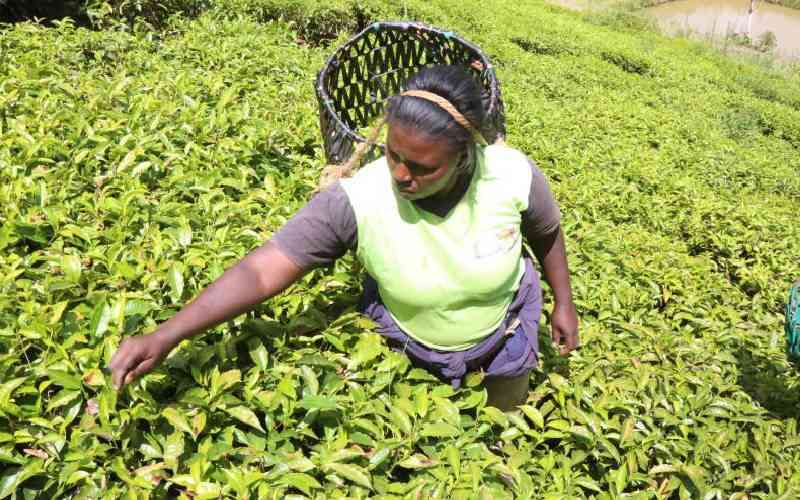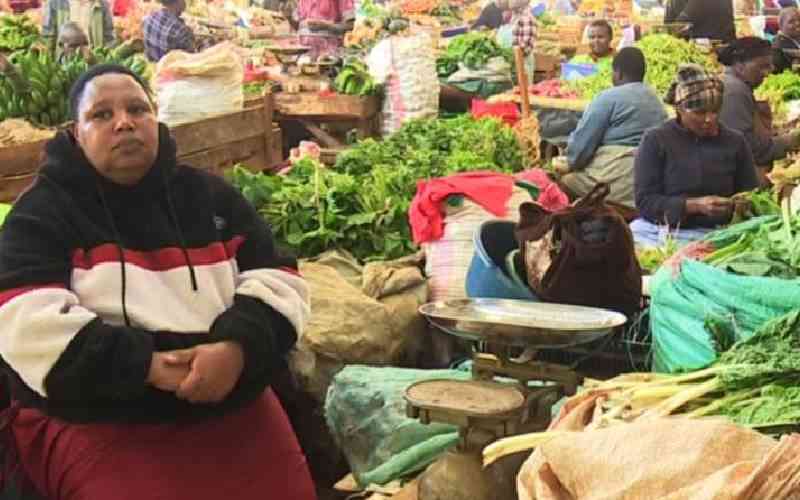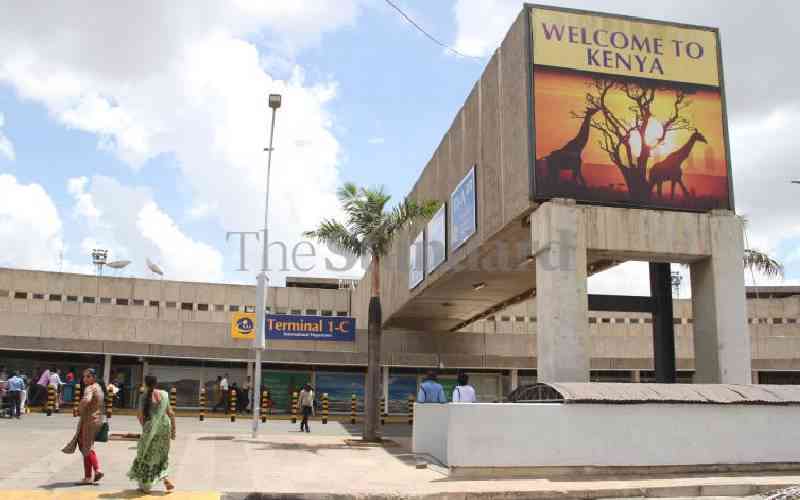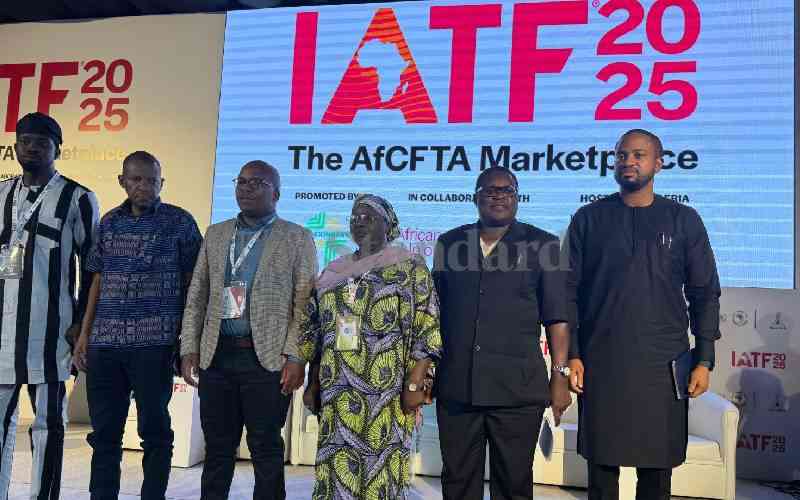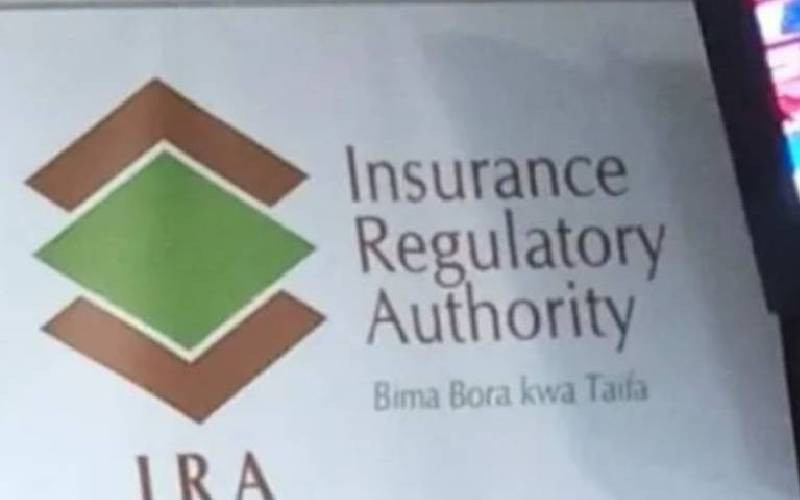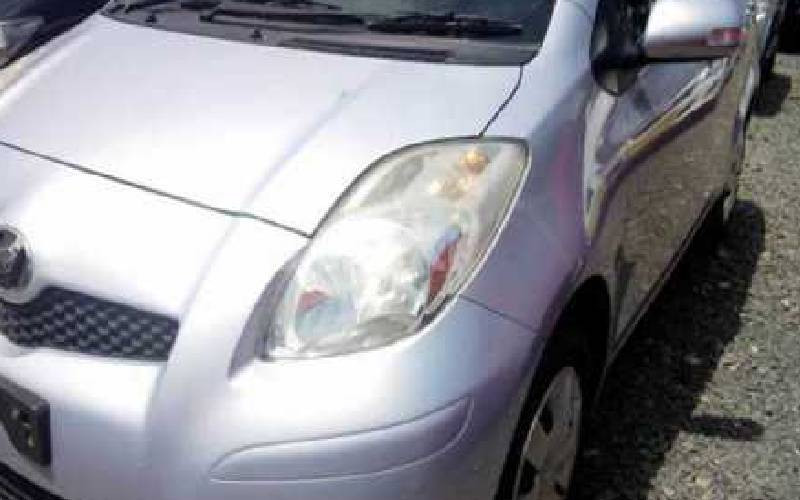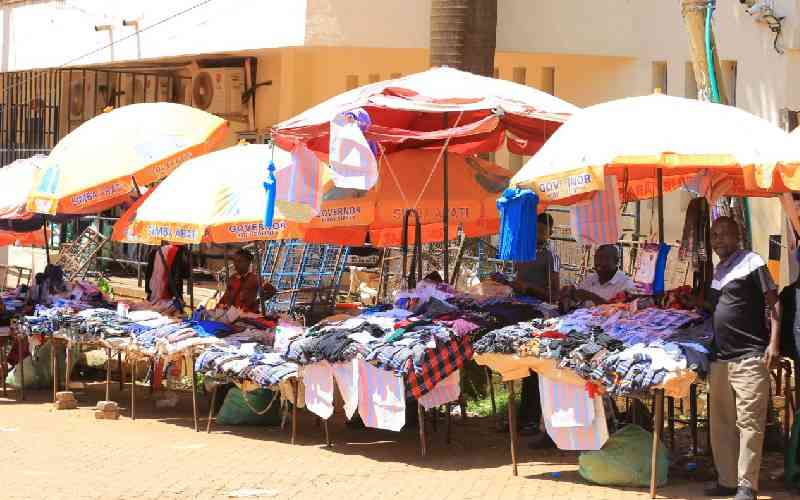
Traders display school items in Kisii town, on August 25, 2025. Most traders have decried low sales as schools reopen for 3rd term. [Sammy Omingo, Standard]
The new term of the school calendar has started, but learning institutions continue to grapple with the old challenge of financial constraints.
Kenya Secondary School Heads Association (Kessha) chairman Willy Kuria has warned that without immediate intervention, it will be difficult for schools to sustain essential operations such as feeding learners, paying utilities, and preparing for national examinations.
“Day schools are the most affected because they rely solely on government capitation. The financial constraints are making it difficult for schools to meet even the most basic operational needs,” Kuria said.
He revealed that the government is yet to release more than Sh18 billion owed to schools. He noted that for both the first and second terms, only partial disbursements were made.
“How do you expect a headteacher to feed learners, pay bills, and prepare for exams when there is literally nothing in the accounts?” he asked.
The funding gap has compelled schools to adopt a strict position on fees. Notices from several schools seen by The Standard stipulate that parents must pay full fees before students are allowed to resume learning.
Many parents now find themselves caught between the strict demands of schools and their own economic hardships.
Meanwhile, several boarding schools have been cut off by suppliers demanding payment of outstanding debts before resuming deliveries.
National Parents Association Chairman Silas Obuhatsa has accused the government and schools of unfairly shifting the burden to families.
“The government takes too long to release capitation funds, sometimes delaying until the end of the school term. This is a crisis created by the government itself,” Obuhatsa said.
He condemned the imposition of extra levies on parents, terming them illegal.
Geofrey Okumu, a parent at Moi Girls Nyabohanse, lamented that he is required to purchase a ream of paper in addition to paying Sh3,000 in remedial fees for the third term.
“Since the government does not give enough money to schools, the burden is passed to us parents. Schools are in a dire state and headteachers are under enormous pressure,” he said.
Stay informed. Subscribe to our newsletter
The Kenya Union of Post Primary Education Teachers (KUPPET) Secretary-General Akelo Misori warned that the financial instability in learning institutions could affect syllabus coverage and preparations for end-of-year and national examinations.
“The government has not found it prudent to pay capitation to schools. It is unfortunate that the government cannot prioritise education. Schools have no money, and parents are being forced to fill the gap,” said Misori.
The third term is the shortest but most consequential in the school calendar. It is the term when 990,000 students will sit the Kenya Certificate of Secondary Education (KCSE) examinations.
Under the Competency-Based Education (CBE) assessments, learners in Grades Nine, Six, and Three will also be sitting examinations.
The funding crisis is also spilling over into local economies. Bookshops and uniform vendors, who normally enjoy booming business at the start of the term, report sluggish sales.
Parents, strapped for cash, are opting for second-hand books sold on the streets, while many are recycling uniforms from older children.
“Parents are coming to window-shop, not to buy,” said a trader on Nairobi’s River Road.
The only sector benefiting from school reopening is transport. On Sunday, bus stages across major towns were swarmed with students and parents rushing to beat the reporting deadline. However, the excitement quickly turned into frustration as matatu operators doubled fares, capitalising on the high demand.
From Nairobi to Machakos, fares that normally range around Sh200 were hiked to Sh400. In Western Kenya, the route from Kakamega to Nairobi, which usually costs Sh1,000 to Sh1,200, saw travellers being charged up to Sh1,800.
“We are already struggling to raise school fees, and now even transport is a burden,” said a parent at the Machakos Country Bus station.
Last Friday, Education Cabinet Secretary Julius Ogamba sought to reassure parents that funds would be released before schools reopened.
Speaking in Kisii, Ogamba called for calm.
“The money is available and will be sent to schools, so let not a few technical delays derail you,” he said.
